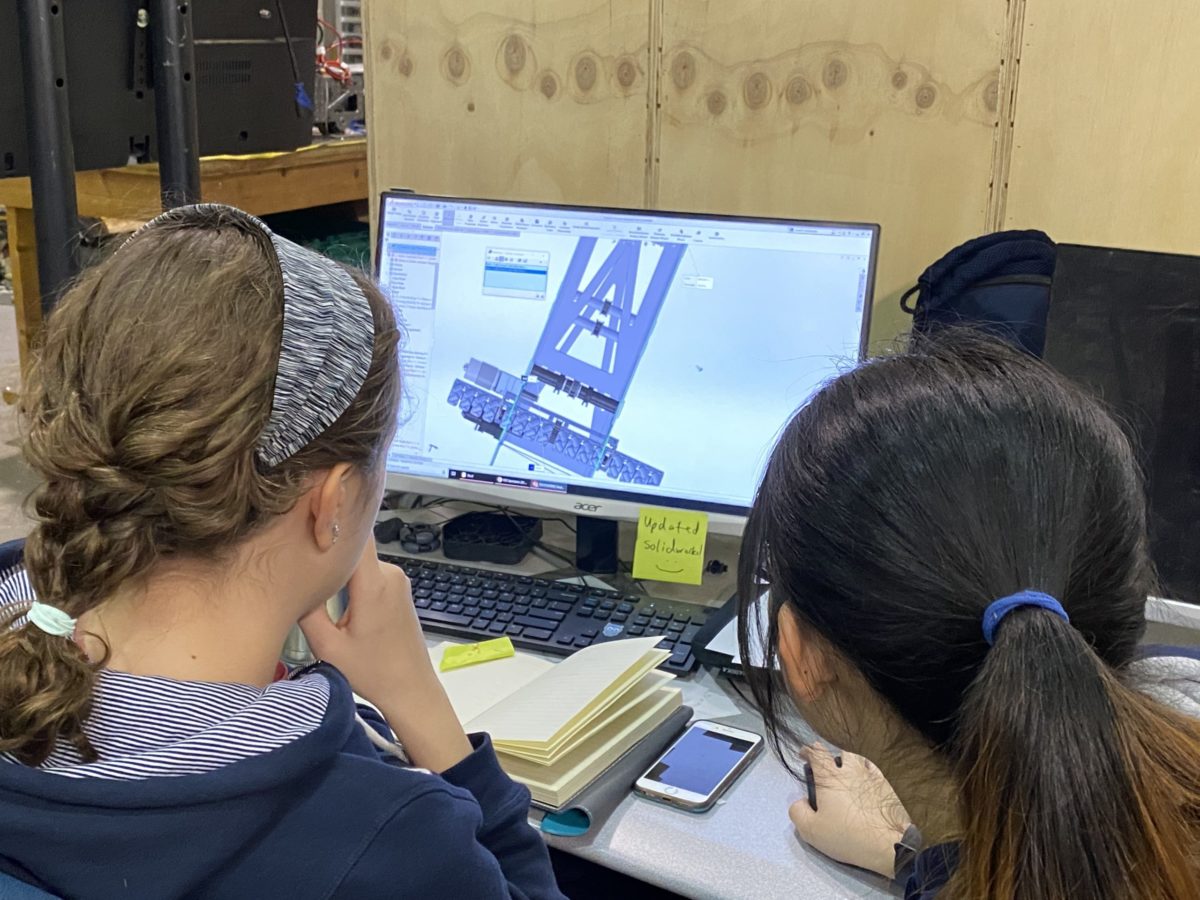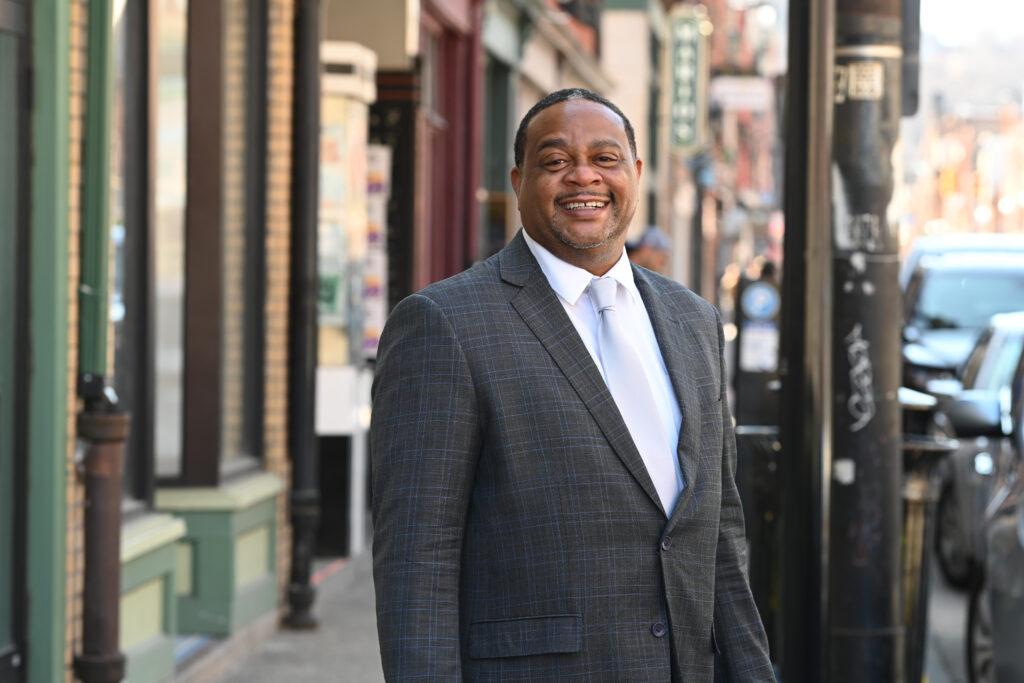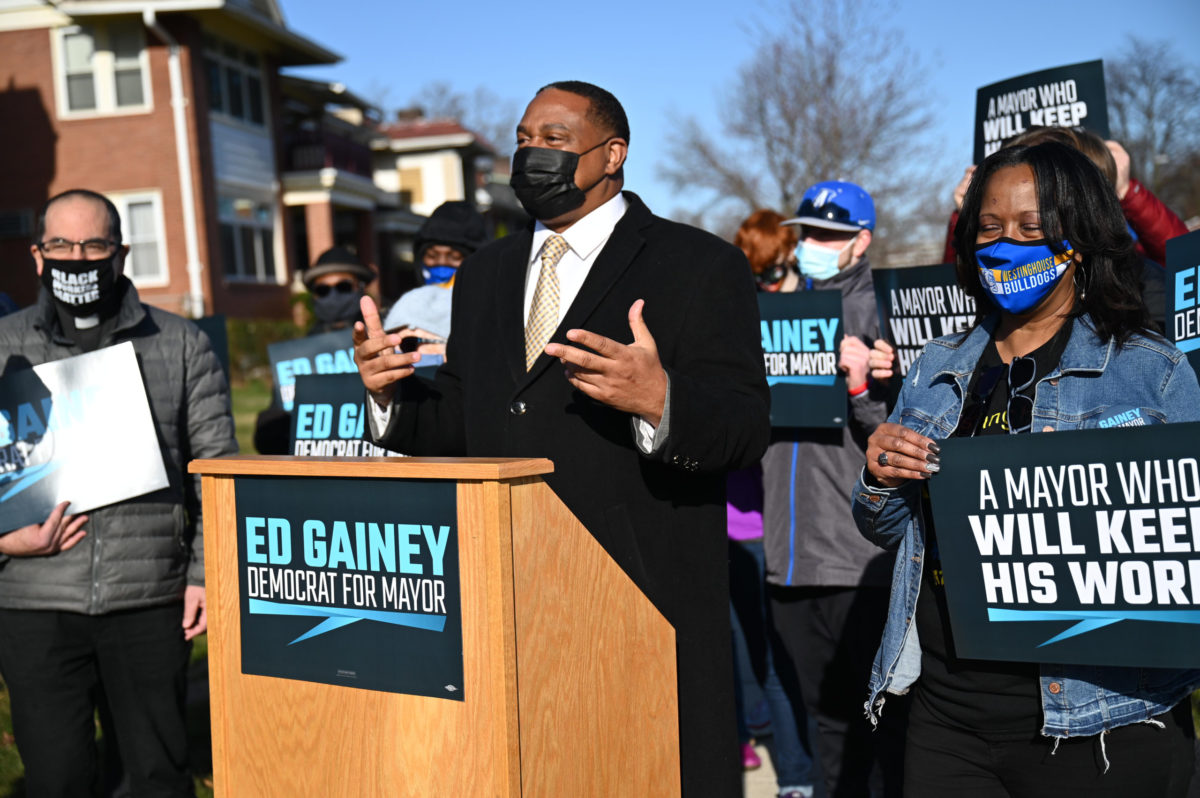A landmark election for Pittsburgh’s mayor is only four weeks away. So, Technical.ly got on the phone with Democratic nominee State Rep. Ed Gainey to talk about his plan for the tech industry.
Gainey won a dramatic primary race in May when he beat out incumbent Mayor Bill Peduto on a platform of making sure Pittsburgh lives up to its reputation as being the most livable city, but for residents of all backgrounds and income levels. Though Gainey still needs to win the general election to become mayor, he is the overwhelming favorite in a city that’s voted blue for its mayors since 1934. If he wins, he will be Pittsburgh’s first Black mayor.
His opponent is former police officer Tony Moreno, who ran for the Democratic nomination in the primaries only to switch to being the Republican candidate for the general election. Technical.ly has reached out to Moreno’s team several times via phone and email, but has not heard back about scheduling an interview or completing the mayoral survey, one of which we published from Gainey this summer.
There is a lot of pressure on Gainey to continue the momentum started by Peduto in both attracting local offices of Big Tech to Pittsburgh, and in growing the talent pipeline for entrepreneurship from area universities. Riding on the high of public offerings and other successful exits this summer, the tech community will look to make sure city government can encourage more successes, and help keep Pittsburgh a capital for certain sectors of the industry going forward.
Technical.ly talked to Gainey about all of this, as well as how he plans to ensure that continued growth is equitable for all Pittsburgh residents. This interview has been edited for length and clarity.
###
Technical.ly: We’ve seen a lot of successful exits for Pittsburgh companies this summer, most notably Duolingo’s IPO. It’s been a long time since we’ve seen a deal that big come from a homegrown company. What do we have to do to make sure the wait isn’t as long for the next one?
State Rep. Ed Gainey: The tech industry is the future — Duolingo, the driverless cars, the whole industry. The AI coming out of [Carnegie Mellon University] with robotics, is bolstering. It is not only just bolstering in regards to employment, but it’s moving our economy in regards to people outside of Pittsburgh. The development and growth of this industry [is what] we want to continue.
The other thing I think that we can do to really both win and get continue to momentum is, how do we deposit in our youth? So just talking about how we work with Pittsburgh Public Schools (PPS), to foster some type of curriculum that really deals with a stronger STEM program so that the kids get excited about technology. Because I think it’s a perfect fit, because kids are excited about technology. Give them a cell phone, and you’ll see. Give them a video game and you’ll see. There’s something about technology that attracts people. I just think that the energy needs to be created in the infrastructure, where people grow up learning all the different aspects of tech.

Along those same lines, how will you make sure that, as this industry grows here and companies grow their businesses here, that they are supporting the community by hiring people from Pittsburgh as opposed to mainly bringing in outside talent?
That’s creating the talent pool. And that’s what we’re talking about. There has to be an infrastructure between the tech communities, the universities, and our PPS and [Community College of Allegheny County], to begin to talk about, how do you create that skill set that’s needed to thrive in the tech industry?
I think that’s critical, because if we’re going to hire domestically, which should be definitely a focus — the question is also, how do we educate to make sure that we have a workforce that is prepared to go domestically, and that understands the skill set that it takes to be in the tech industry? That’s the missing link, right?
When you talk about the digital divide, when you talk about why some communities feel left behind, it’s because they don’t feel connected to this new economy. And when you do a deeper dive, what you discover is that we have more work to do in creating the right type of workforce development programs that give them the skills to be able to flourish in the tech industry.
We’ve reported a lot on the lack of diversity in Pittsburgh’s tech industry, and the consequences of it in terms of wealth and opportunity. How will you encourage local tech companies to focus on hiring a more diverse workforce and put support systems in place to make Pittsburgh tech a safe place where all residents can thrive?
You absolutely have to lead by example. I think number one is that we as a city [government] have to be able to do it. And we have to make sure that we’re putting Black women in leadership roles, directorship roles, so that the image of Black women changes. And ensuring that we have the right people at the right positions, to be able to discuss technology.
If we change the image internally, externally, we can also talk about how we set up systems. You have a whole lot of HBCUs that have fantastic operations, when it comes to engineering and mathematics. I have to find out what is the connection between our tech industries here, and how they’re reaching out to predominantly HBCUs or universities that have a high percentage of African Americans, particularly women, and how they’re recruiting.
And there’s a lot grants out there to help startup companies and entrepreneurs. Maybe a lot of African Americans don’t even know about because they’re not connected, nor do we have an infrastructure for getting that information out to them. And so where it begins with us the city, we have to demonstrate our commitment to diversity. Because if we and other cities that have committed to diversity, you’ll see that change from the public sector to the private sector.

While growth in the tech industry has been good for a lot of Pittsburgh’s economy, there are also some parts of it that have damaged communities. We often hear about the gentrification of East Liberty and displacement of residents there as an example of that. As the industry expands into new neighborhoods like Hazelwood and Point Breeze, how do we prevent that from happening again?
Something we will continue to talk about is how do we want to push inclusionary zones, so that we understand that regardless of what’s built — and particularly housing developments — that from the beginning, inclusionary affordability and affordable housing is embedded into the project or projects? At the end of the day, we have to ensure that the housing projects or housing developments that we’re building have inclusionary zones.
We didn’t have gradual growth, we had explosive growth. And whenever you have explosive growth, it may be good for the tax base. But as we see this also displaced 7,000 African Americans, and many poor white people were displaced as well. We don’t want to displace people. We want people to stayed through the bad times to enjoy the good times.
And that’s why I’m saying there’s a couple things that have to happen. One, is inclusionary zoning to ensure that housing affordability is in redevelopment. And two, we have to make sure that from tech to universities to PPS, there’s infrastructure where they’re having conversations about what the future economy looks like, and what we have to do to prepare our kids to be part of that, so that they stay here, and they grow in that industry, and don’t leave.

As the pandemic continues, so does remote work for a lot of companies. In fact, our reporting has shown that some companies are making a permanent switch to remote work, even after the pandemic ends. How are you planning on making Pittsburgh a destination for remote workers?
Yeah, it looks like there’s going to be a lot of hybrid models. I think from the private sector, they’re going to have to determine how they’ll deal with that. From the public sector, we would encourage people to come to work, because there’s so many city services, as you know, that need personnel, and that they have to be on the front line.
If you want to be a CEO, or president of company, then there’s gonna be some days you have to go to work. There’s gonna be some days that there’s certain skill sets that you can’t learn remotely. Now, that’s not to say that we can’t do work remotely. But that’s for a lot of the private sector, depending on their industry, to have to determine. But I do know that to learn how to run the business, you have to be present. There’s a strength in being present.
Beyond some of the details we’ve just discussed, what is your pitch to the engineers, technologists, entrepreneurs and other members of the tech community on why they should vote for you in November?
Thank you for helping us to reshape our economy. I think that speaks volumes in regards to the rebirth of Pittsburgh, I really do. And I want to thank them, because I also think that they can be a great partner in helping to remove the digital divide. I think us working together to help remove the digital divide will continue to educate our youth on how great the tech industry is, and why it’s such a great career to go into.
That helps to build a city for all. That helps to build a city where people feel that there’s opportunity, and where they have access, and where they have a sense of feeling welcome. And so I think there’s a million things that we can work together. And that’s why I’m asking for their vote. Because a vote for Ed Gainey is a vote to have that collaboration, to really talk about how we bolster our economy through tech, but also how we remove barriers so that others can join in and that momentum can continue to grow. And I look forward to working with the tech industry to do just that. Because I believe the more we collaborate, the more we build a city for all.







